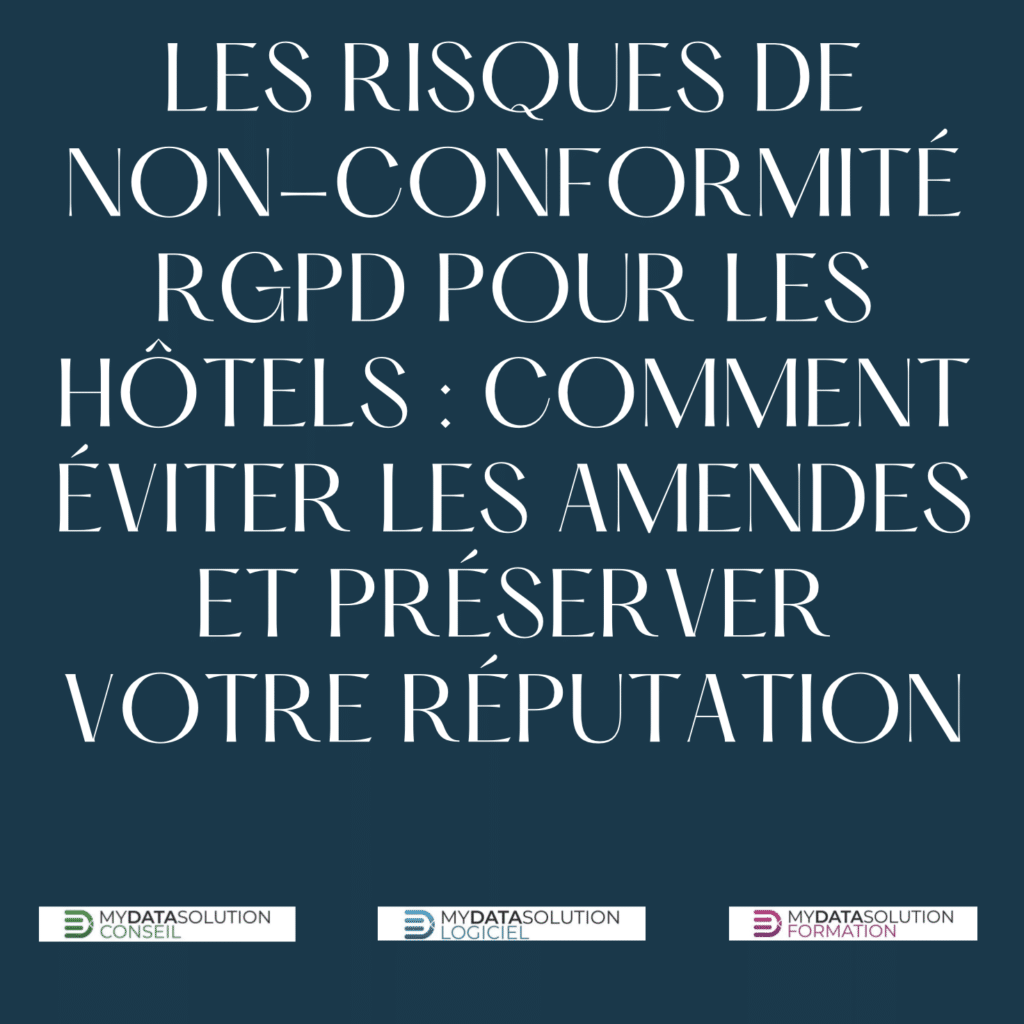RGPD non-compliance risks for hotels: How to avoid fines and preserve your reputation
In today's digital age, protecting personal data is a top priority. Hotels, as organizations that regularly collect and process sensitive data, are subject to stringent strict data protection obligations in accordance with General Data Protection Regulation (GDPR). This article examines the risks hotels face in the event of RGPD non-compliance and suggests practical measures to avoid fines and preserve their reputation.
The risks of RGPD non-compliance for hotels
Financial fines
Non-compliance with the RGPD exposes hotels to considerable fines. For example, in 2020, a major hotel chain was fined 50 million euros for failing to obtain a valid consent and clear when collecting customer data. Fines can reach up to 4 % of the hotel's annual worldwide sales, or 20 million euros, whichever is greater.
Damage to reputation
In addition to financial fines, RGPD non-compliance can cause considerable damage to a hotel's reputation. For example, in 2019, one hotel suffered a data breach that exposed the personal information of thousands of guests. The breach resulted in negative media coverage, cancelled bookings and a loss of customer confidence. Hotels risk losing customers and suffering a deterioration in their reputation in the market.
Litigation and legal proceedings
In the event of non-compliance with the RGPD, hotels expose themselves to litigation and legal action by data subjects. For example, in 2021, a hotel was taken to court by disgruntled guests for failing to respect their right to access and rectify their personal data. Litigation and legal action can entail significant financial costs and have a negative impact on the hotel's reputation.
How to avoid fines and preserve your reputation
Establishing sound data governance
The first essential step in avoiding the risks of RGPD non-compliance is to set up a strong data governance. For example, XYZ Hotel has appointed a Data Protection Officer to oversee data protection activities, implement data protection policies and procedures, and train staff in good data processing practices.
Informed and transparent consent
Obtaining valid and informed consent from data subjects is a fundamental requirement of the GDPR. For example, the ABC Hotel has implemented a clear consent process and explicitly when booking online, clearly explaining the purposes of data processing and giving customers the possibility of withdrawing their consent at any time.
Data security and access management
Data security is a major concern under the RGPD. For example, DEF Hotel has implemented robust security measures to protect its guests' personal data. This includes theuse of advanced encryption systems to protect sensitive information, limiting access to data to authorized persons only, and regularly monitoring data processing activities to detect any anomalies.
Staff training and awareness
Staff play a key role in RGPD compliance. For example, the GHI Hotel has implemented training programs regular meetings to raise staff awareness of the principles and requirements of the RGPD. Employees are trained on good data protection practices, the procedures to follow in the event of a data breach and the security measures to comply with. They understand the importance of data protection and confidentiality.
To sum up
RGPD compliance is essential for hotels to prevent fines and preserve their reputation. By implementing robust data governance, obtaining informed and transparent consent, securing data and training staff, hotels can reduce the risks of RGPD non-compliance. By adopting these proactive measures, hotels boost customer confidence, improve their brand image and stand out from the competition.






